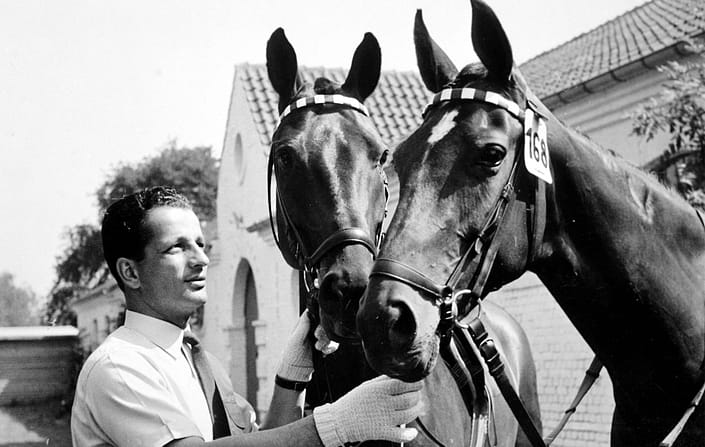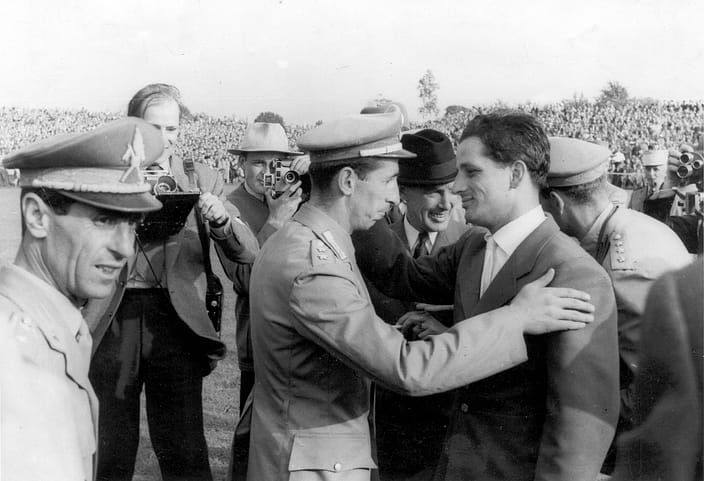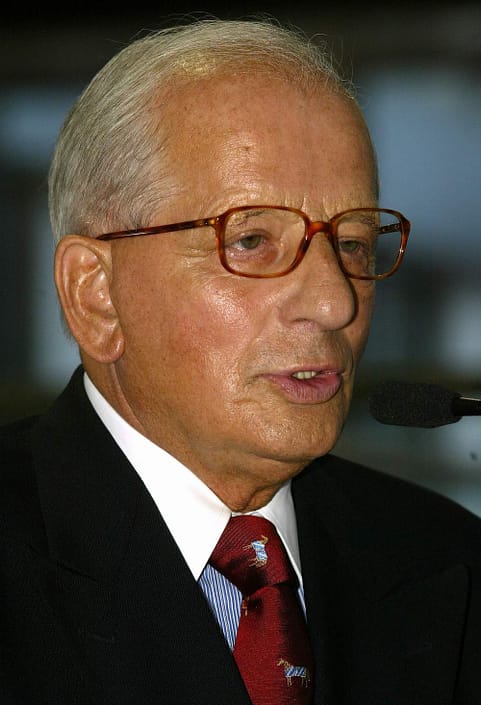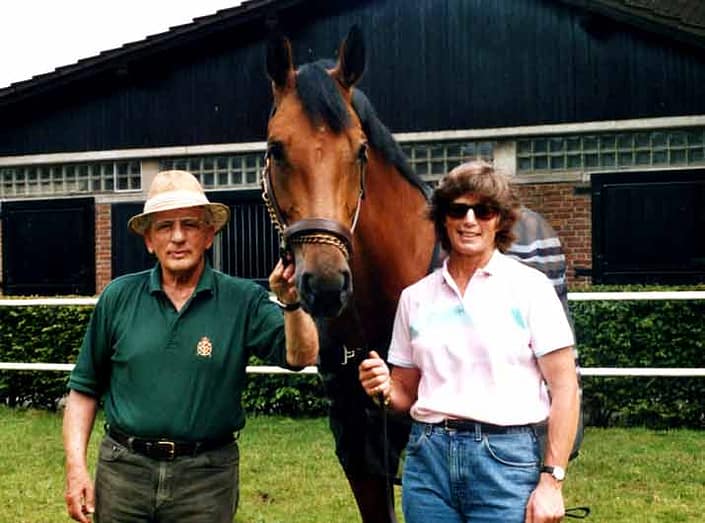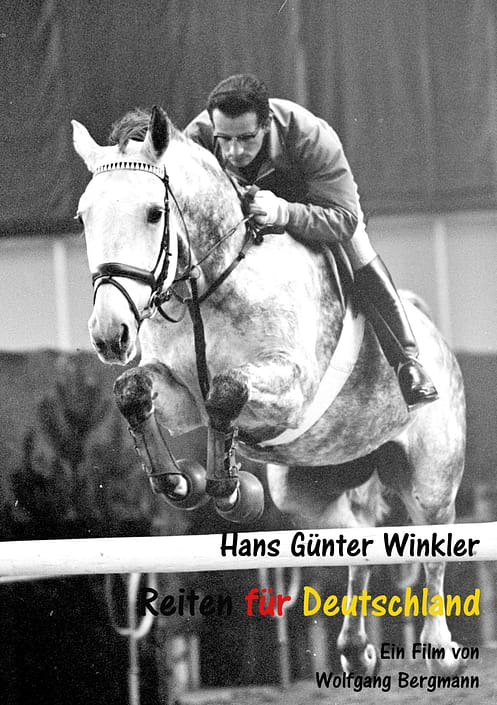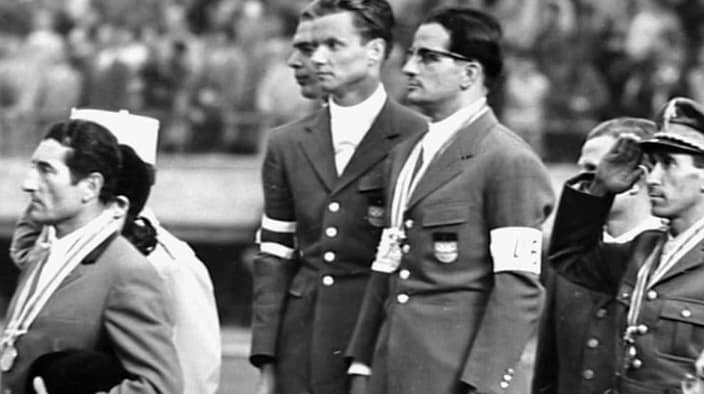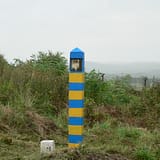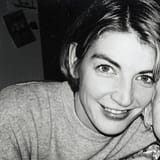First comprehensive portrait of the world’s most successful jumper, Hans Günter Winkler.
Between 1956 and 1976, he won seven medals at six Olympic
seven medals. He was German Champion five times, European Champion once, World Champion twice and Sportsman of the Year several times.
His legendary ride at the 1956 Olympic Games in Stockholm remains unforgotten, when his miracle horse “Halla” completed the course without a fault, despite the fact that Winkler was only able to stay in the saddle thanks to a torn ligament and strong painkillers.
Born on 24. July 24, 1926 in Wuppertal-Barmen, Winkler grew up in the stables of a riding school where his father worked as a teacher. Even as a young boy, he was in the saddle and soon received a pony of his own. But the war did not pass him and his family by without a hitch. At 16, Winkler was drafted into the German labor service and later served as a soldier. Shortly before the end of the war, he escaped from Belgian captivity with yellow fever. He found his home destroyed, his father killed in the last weeks of the war.
After the war, he returned to his great passion, horse racing. His success story is inextricably linked with difficult horses – especially with the so-called miracle mare “Halla”. She was considered a temperamental, unruly mare, a “crazy, failed military horse,” as Winkler recalls. No doubt a great challenge even for experienced riders. Winkler took on the challenge and led the headstrong primadonna to an unprecedented series of victories in show jumping. His first wife, Inge Fellgiebel, played an important role in this. She took care of and trained his horses, especially Halla. In 1960, at the height of his fame, she separated from him. His heroic treatment of her and his many girlfriends disturbed her. When he said goodbye to Halla with a winning ride at the 1960 Brussels tournament, some competitors hoped that Winkler’s career was over. But he was also successful with other horses at the Olympic Games in Rome, Tokyo and Munich, and continued to impress the world’s public.
Since his farewell ride in Aachen in 1986, Winkler has rarely been in the saddle, and today he no longer rides at all: The work with young horses has caused him back problems. Instead of riding, he does recreational sports such as tennis and skiing. But he is still active in equestrian sports. He promotes and looks after the next generation of riders, for whom he has developed modern examination guidelines.
The film shows Winkler’s decisive victories in interviews and archival footage. The dramatic centerpiece is his gold medal in Stockholm in 1956. His greatest rival, Raimondo D’Inzeo from Rome, and the Brazilian jumping rider Nelson Pessoa tell of the sporting battles. But the movie also gives insights into his private life. His first wife Inge Fellgiebel and his current wife Debby, as well as his first riding partner Inge Zimmer, talk about their experiences with the man Winkler.
Debby Winkler died in a riding accident in February 2011. Hans Günter Winkler died on 9. July 2018.
Eine Produktion LICHTFILM Wolfgang Bergmann im Auftrag
des WDR 2005, Redaktion Matthias Kremin

